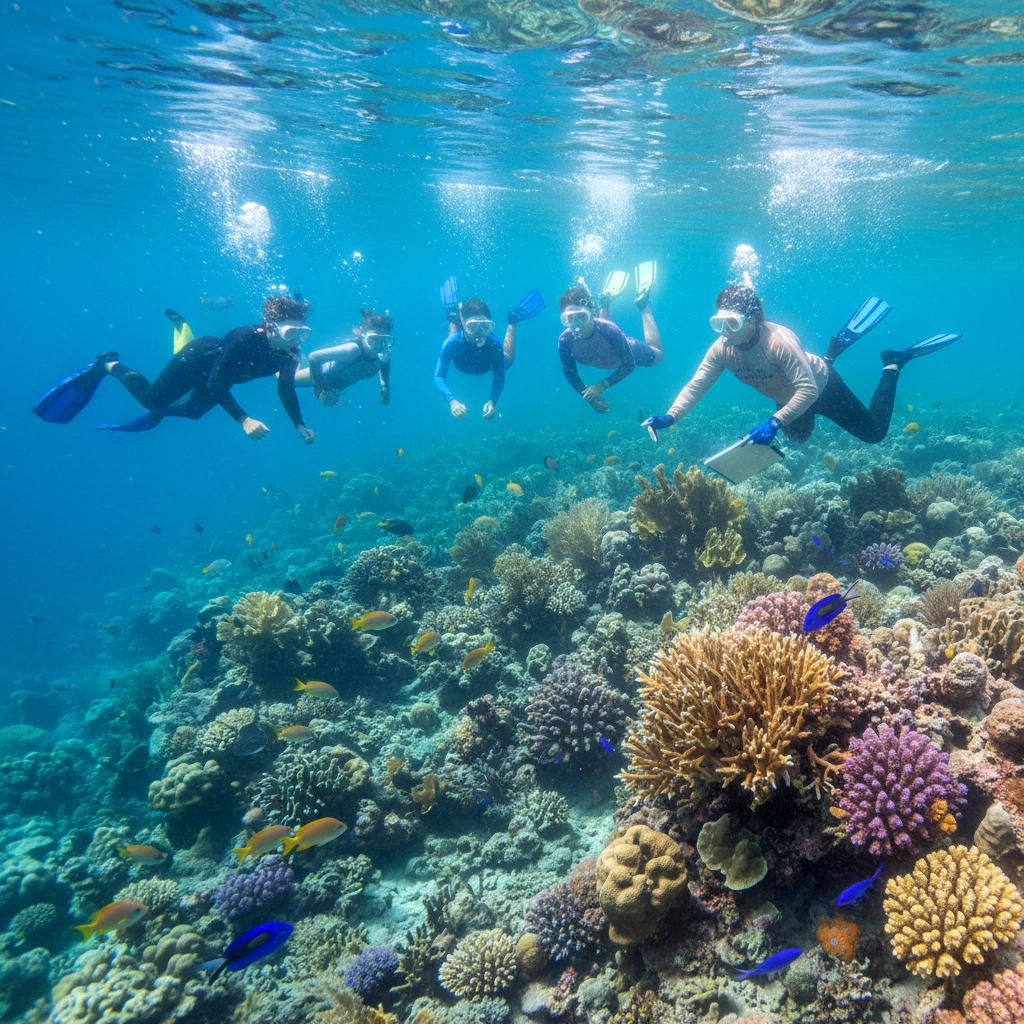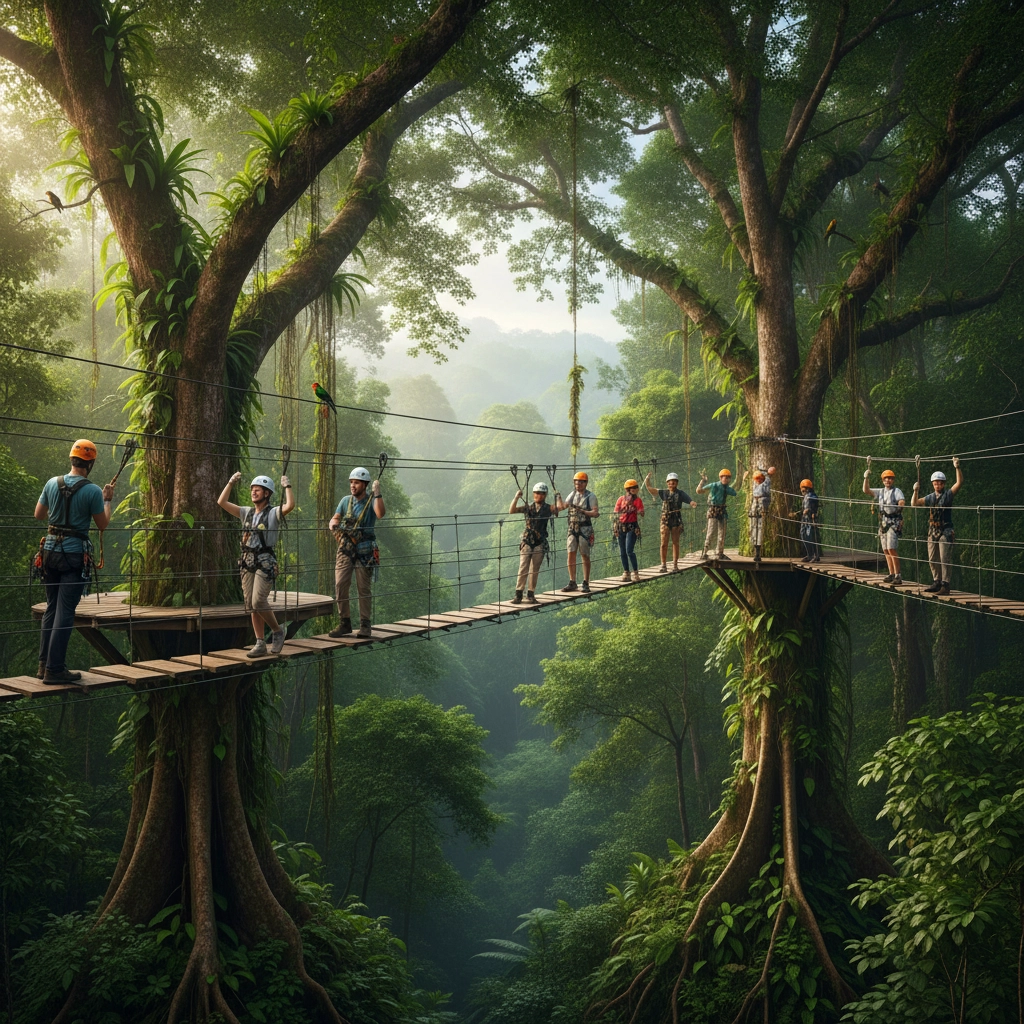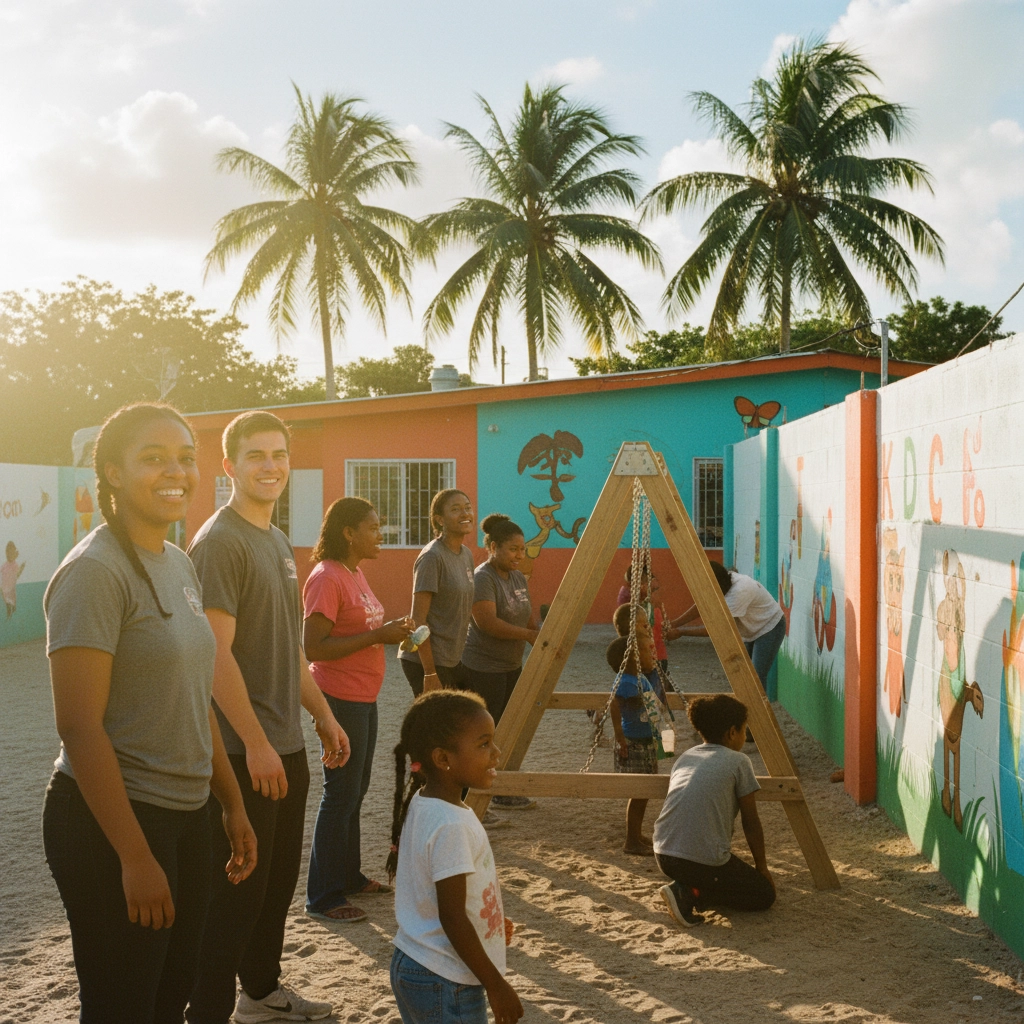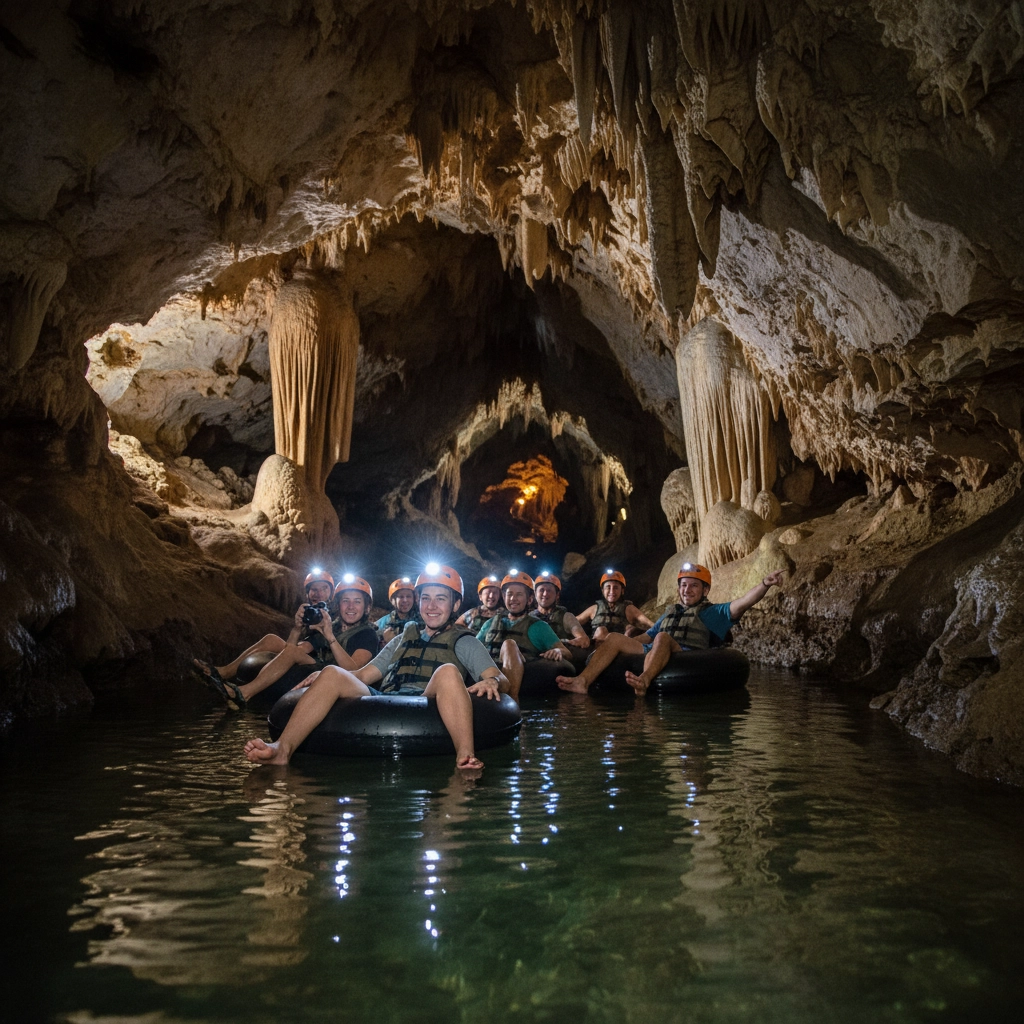Educators Guide: Planning an Unforgettable Belize Educational Adventure
- Caleb Mullenix
- Oct 23, 2025
- 5 min read
Updated: Oct 23, 2025
Planning an exceptional educational expedition to Belize requires meticulous preparation, strategic curriculum alignment, and unwavering commitment to student safety and engagement. As the only English-speaking country in Central America, Belize offers unparalleled opportunities for transformative learning experiences that combine marine science, tropical ecology, and meaningful community service. This comprehensive guide provides educators with the essential framework to design, organize, and execute an educational adventure that will profoundly impact your students' understanding of environmental science, cultural diversity, and global citizenship.
Why Belize Represents the Ideal Educational Destination
Belize's unique geographical position creates extraordinary educational opportunities within a single destination. The country encompasses two distinct ecosystems: pristine Caribbean coastal environments and dense tropical rainforests: enabling students to conduct comparative ecological studies across diverse habitats. The Belize Barrier Reef, recognized as the second-largest reef system globally, provides unmatched marine science learning opportunities, while the country's extensive protected rainforest areas offer hands-on tropical ecology experiences.
Consider Belize's accessibility advantages for educational groups. English serves as the official language, eliminating communication barriers that often complicate international student travel. The country's stable political environment, established tourism infrastructure, and proximity to North America ensure manageable logistics while maintaining authentic cultural immersion experiences.

Essential Educational Components of Your Belize Expedition
Marine Science and Reef Conservation
Begin by establishing clear learning objectives for marine science components. Students will engage in hands-on reef monitoring activities, collecting data on coral health, fish populations, and marine biodiversity. Partner with certified marine biologists who can guide students through proper scientific observation techniques and data collection protocols.
Ensure students understand the critical importance of the Belize Barrier Reef ecosystem before departure. Prepare them to observe endangered species including West Indian manatees, various shark species, and over 500 fish species. Create structured observation logs that students will complete during snorkeling expeditions, emphasizing scientific methodology and environmental stewardship.
Tropical Ecology and Rainforest Studies
Design comprehensive rainforest exploration activities that highlight Belize's exceptional biodiversity. Students will study medicinal plants traditionally used by indigenous communities, observe exotic wildlife including howler monkeys and toucans, and learn about complex rainforest ecosystems and their global environmental significance.
Incorporate cave exploration experiences that connect geological sciences with cultural history. The extensive limestone cave systems of Belize were considered sacred by ancient Maya civilizations, providing opportunities to integrate earth sciences with archaeological studies. Ensure all cave activities follow strict safety protocols with certified guides and appropriate safety equipment.
Service Learning at Liberty Children's Home
Establish meaningful service learning partnerships that benefit both students and local communities. At Liberty Children's Home in Belize, your students will engage in educational support activities, infrastructure improvement projects, and cultural exchange programs that demonstrate the principles of servant leadership and global citizenship.
Prepare students thoroughly for service experiences by discussing cultural sensitivity, appropriate behavior expectations, and the importance of respectful engagement with local communities. Emphasize that service learning requires genuine commitment to helping others rather than simply observing different cultures.

Strategic Planning and Logistics Management
Pre-Departure Preparation Requirements
Begin planning your Belize expedition at least twelve months in advance to ensure comprehensive preparation and optimal pricing. Research and select reputable educational travel operators with extensive Belize experience, proper safety certifications, and strong relationships with local communities and conservation organizations.
Create detailed pre-departure educational materials that include:
Comprehensive country briefings covering history, culture, and current events
Environmental science background on reef and rainforest ecosystems
Safety protocols and emergency procedures
Cultural sensitivity guidelines and appropriate behavior expectations
Detailed packing lists for tropical climate and varied activities
Safety Protocols and Risk Management
Implement rigorous safety protocols that address the unique challenges of tropical environments and adventure activities. Ensure all students provide comprehensive medical information, including allergies, medications, and swimming abilities. Require parent/guardian emergency contact information and detailed medical insurance documentation.
Establish clear supervision ratios appropriate for international travel and adventure activities. Maintain constant communication channels with school administration, parents, and emergency contacts throughout the expedition. Create detailed emergency action plans that address medical emergencies, weather-related concerns, and communication disruptions.
Verify that all adventure activities meet international safety standards. Cave tubing, snorkeling, and rainforest exploration require certified guides, proper safety equipment, and age-appropriate activity modifications. Ensure students understand and follow all safety instructions without exception.

Curriculum Integration Strategies
Aligning Experiences with Academic Standards
Design your Belize expedition to support multiple curriculum areas simultaneously. Marine science activities align with biology and environmental science standards, while Maya archaeological sites support social studies and world history objectives. Service learning components address character education and global citizenship goals.
Create structured learning activities that students complete during the expedition:
Scientific observation journals for marine and terrestrial ecosystems
Cultural reflection essays comparing Belizean and home country traditions
Service learning impact assessments measuring community engagement outcomes
Environmental conservation action plans students will implement upon return
Assessment and Documentation Methods
Establish clear assessment criteria that measure both academic learning and personal growth outcomes. Use rubrics that evaluate scientific observation skills, cultural sensitivity development, and service learning engagement. Require students to document their experiences through photography, journaling, and collaborative research projects.
Plan post-expedition activities that reinforce and extend learning outcomes. Students should present their findings to school communities, create awareness campaigns about environmental conservation, and maintain connections with service learning partners in Belize.
Maximizing Student Engagement and Impact
Creating Transformative Learning Experiences
Design activities that challenge students intellectually and emotionally while maintaining appropriate safety parameters. Encourage students to step outside comfort zones through guided snorkeling experiences, cultural immersion activities, and meaningful service projects that require problem-solving and collaboration.
Facilitate reflection opportunities throughout the expedition. Daily group discussions, individual journaling time, and structured debriefing sessions help students process new experiences and connect learning to broader global issues.
Building Lasting Connections
Encourage students to develop ongoing relationships with local communities and conservation organizations. Provide opportunities for continued engagement through fundraising projects, awareness campaigns, and correspondence with service learning partners.
Emphasize the long-term impact potential of their Belize experience. Students should return home as environmental advocates and global citizens committed to making positive differences in their communities.

Implementation Timeline and Best Practices
12-Month Planning Schedule
Begin initial planning and budget development twelve months before departure. Research educational travel operators, obtain administrative approval, and begin parent/guardian information sessions. Secure necessary permits and documentation for international travel with minors.
Six months before departure, finalize group size, complete student applications, and begin detailed pre-departure education programs. Confirm all logistics, accommodations, and activity reservations with operators and local partners.
Three months before departure, conduct final safety briefings, complete all documentation requirements, and ensure students have appropriate gear and preparations completed. Confirm emergency procedures and communication protocols with all stakeholders.
Post-Expedition Follow-Up
Plan systematic follow-up activities that reinforce learning outcomes and maintain engagement with global issues. Students should share their experiences through presentations, community service projects, and ongoing communication with Belizean partners.
Evaluate expedition outcomes through student feedback, academic performance measures, and long-term engagement indicators. Use assessment results to improve future expedition planning and student preparation processes.
Your commitment to thorough preparation, safety consciousness, and meaningful educational design will ensure your Belize expedition creates transformative learning experiences that inspire students to become engaged global citizens and environmental stewards. The investment in comprehensive planning yields immeasurable returns in student growth, academic achievement, and lifelong passion for learning and service.



Comments